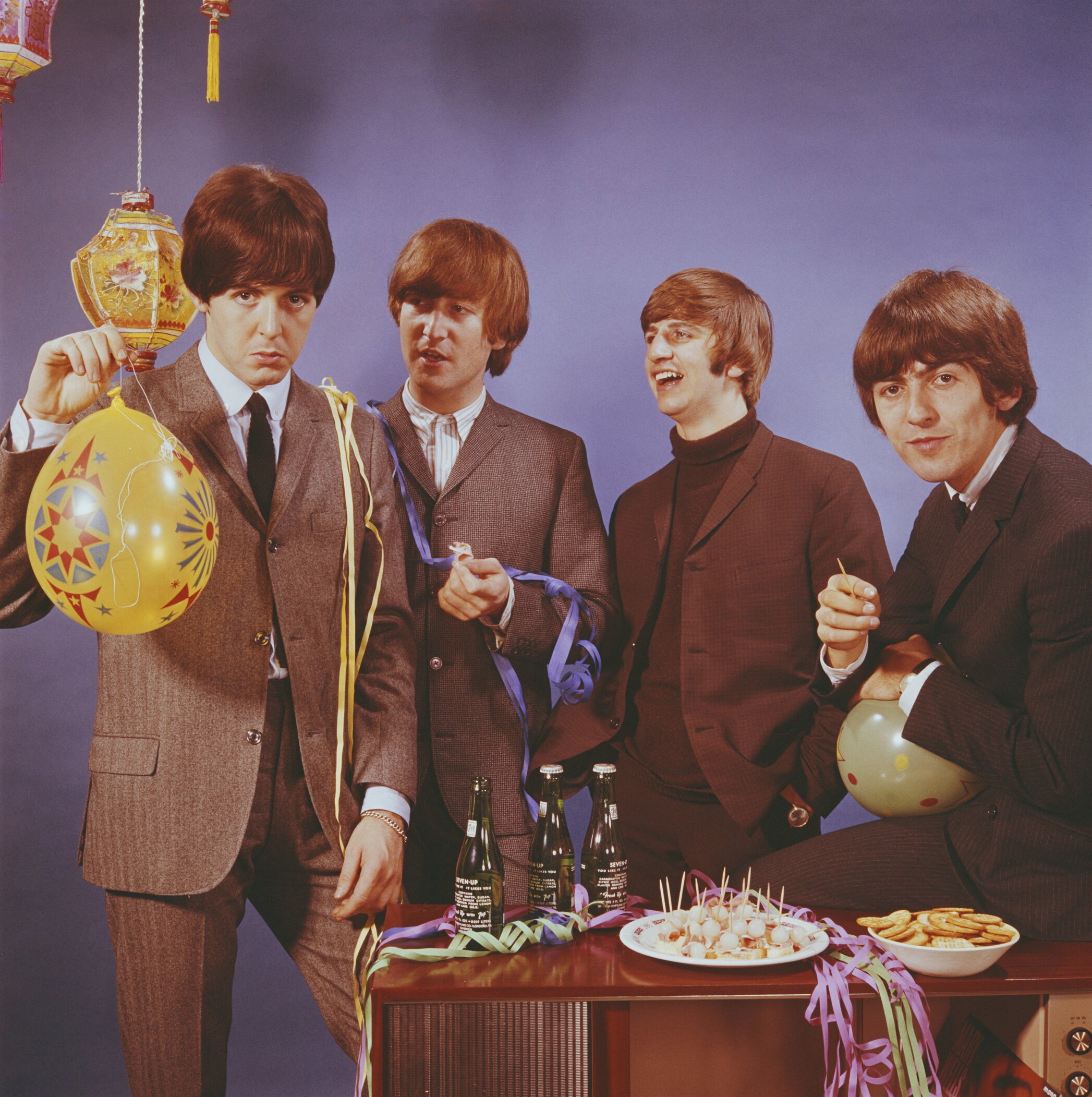George Harrison on What Each of The Beatles Was Really Like: Ringo Starr Was ‘the Party Boy’
Article Highlights:
- What The Beatles were like behind closed doors, according to George Harrison
- The Beatles’ blasé attitude was a defense mechinism
- But they couldn’t hide their excitement about playing in America

In The Beatles‘ heyday, each member was painted as this larger-than-life caricature of a rock star. But what were John Lennon, Paul McCartney, George Harrison, and Ringo Starr really like? Harrison answers that question in one of his columns for the Daily Express in 1964. Here’s how each of The Beatles acted behind closed doors, and why they put on that famous “blasé” attitude.
The Beatles’ personalities, from George Harrison’s perspective
“A lot of rubbish has been written about our personalities,” Harrison wrote with the help of Daily Express writer Derek Taylor, as recorded in the book George Harrison on George Harrison. So he went to set the record straight himself.
“John is supposed to be a relaxed, laconic comedian,” he began. “But this isn’t the whole picture or even the right one. John is a little shy, defensive, always aware of people, interested in their motives and not always pleased by what he finds.”
Starr, on the other hand, was “the party boy” of the group.
“In public, Ringo sings little and says less,” wrote Harrison. “But in private he is the star—far and away the party boy of the four of us. He talks plenty, wittily, in a dry, throwaway style. He’s the one the girls want to dance with. The life and soul.”
And then there’s McCartney.
“Paul, easy-going, wide-eyes,” he wrote. “Paul has concealed depths. He has strong views on everything, great belief in himself, and immense ambition. He is a born leader, though within the Beatles no one leads.”
George Harrison writes about The Beatles famous ‘blasé’ attitude
“As a foursome we are aware of our success: grateful and pleased but no more than that,” Harrison wrote. “We never boast and try not to think boastfully, because we know there is a cliff-edge at the point where vanity takes over from self-confidence. And we are not yet ready to die.”
Their collective unimpressed persona was a result of attempting to process all the amazing things happening to them at the time.
“With so much happening during the last year we’ve built a defense mechanism to keep things in perspective,” he wrote. “We’ve become blasé deliberately because if we hadn’t we’d have gone round the bend with nervous excitement.”
That’s also why they’d joke around so much.
“We’ve been getting most of our kicks from soft things—like singing the wrong line or nearly missing a plane,” wrote Harrison. “When you’re together as much as the four of us are—and often under pressure—you get to laughing at simple things. We play life on a low key and this way we avoid rows.”
This easy-going, jokey attitude also helped to keep the peace.
“We never have bad arguments, which is surprising because there’s a lot of artistic temperament under the surface and not one of us is like the other,” he wrote.
The Beatles were excited to go to America
But there was one thing that got The Beatles outwardly excited, and that was traveling to America to play Carnegie Hall.
“John, Paul, Ringo and I are full of confidence,” wrote Harrison. “For once we’re knocked out with excitement and anticipation.”
Their mission was to prove to their American audience that The Beatles were, indeed, worth the hype.
“We will step into the piercing spotlight on the great stage at Carnegie Hall and we will sing and play as well as we can, as hard as we can as we always do and always did,” he wrote. “More than that we can’t do and we believe it will be enough.”
It was enough.


